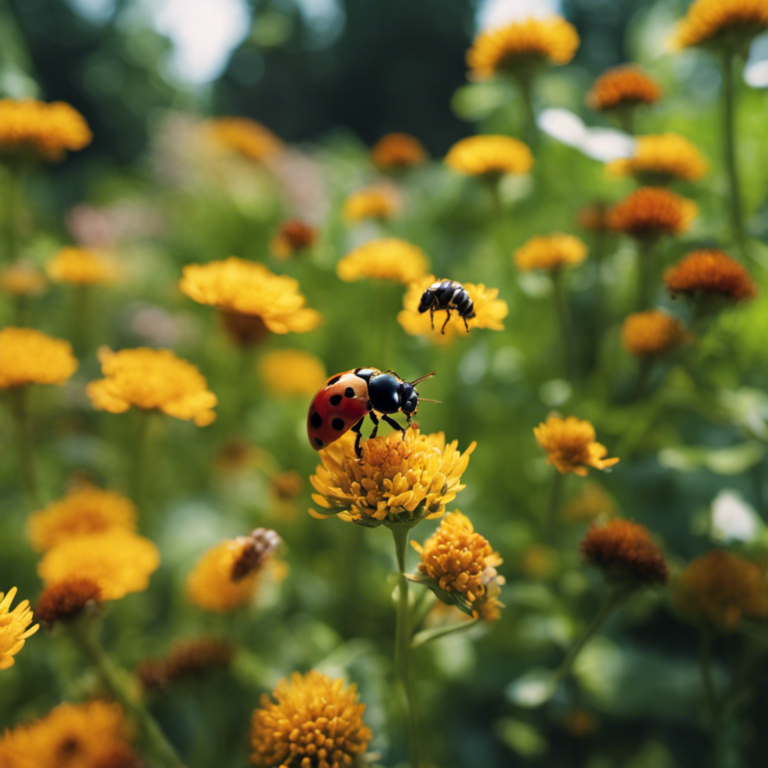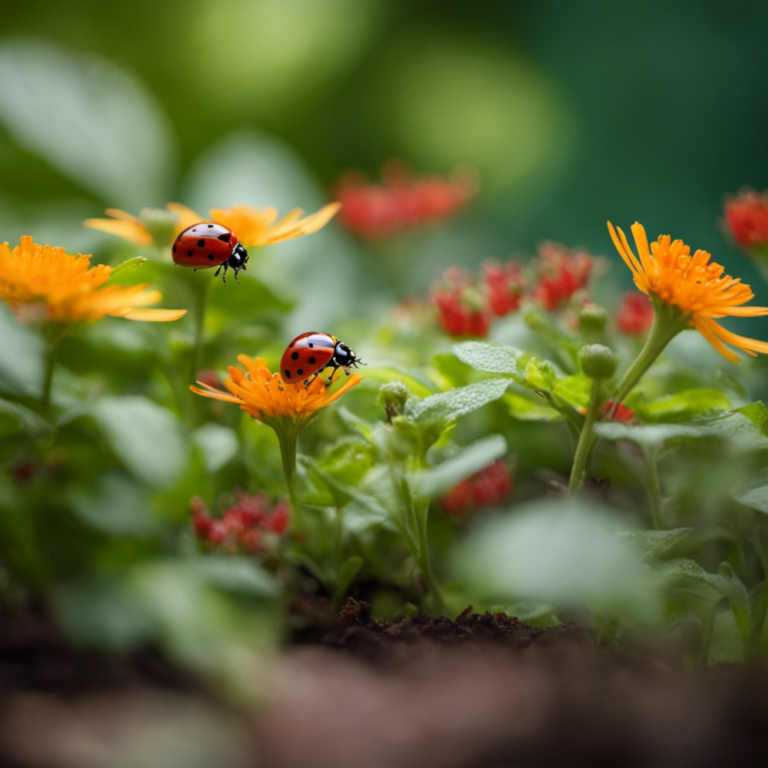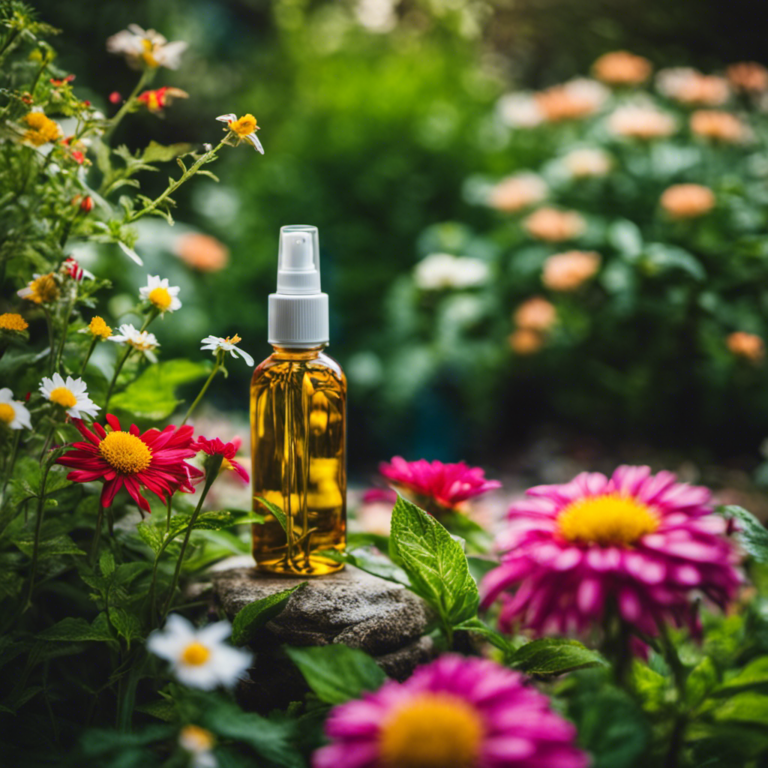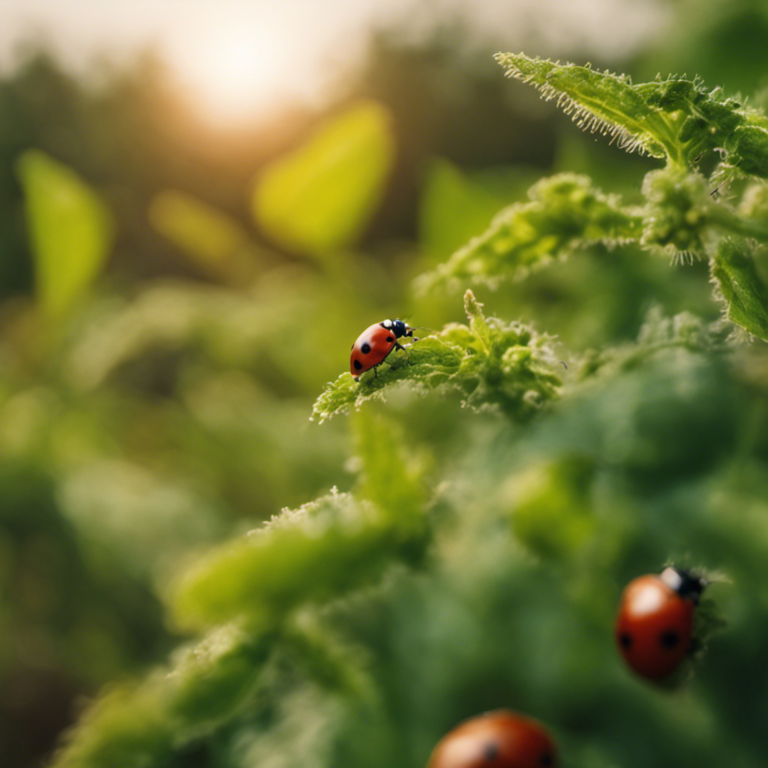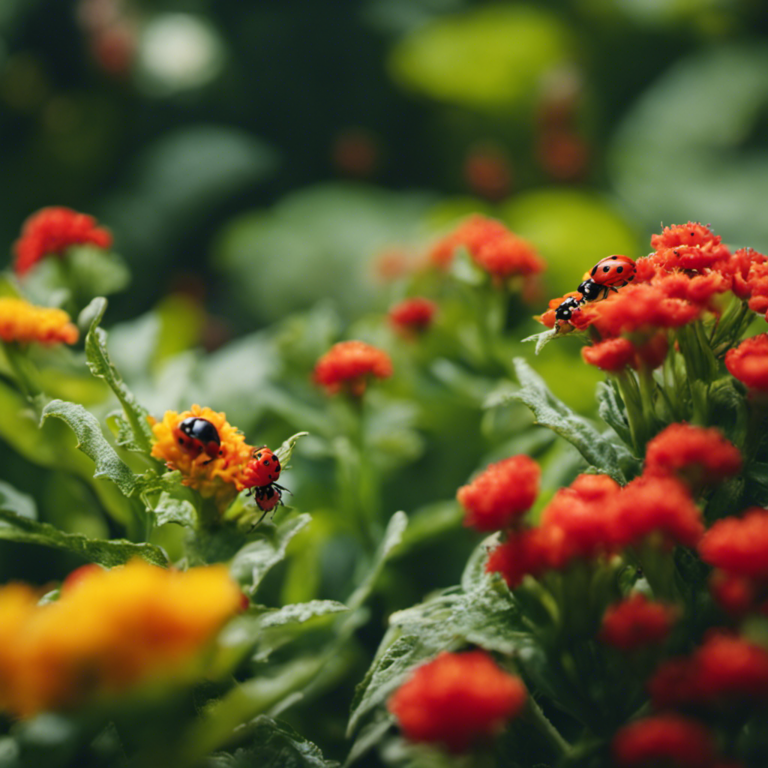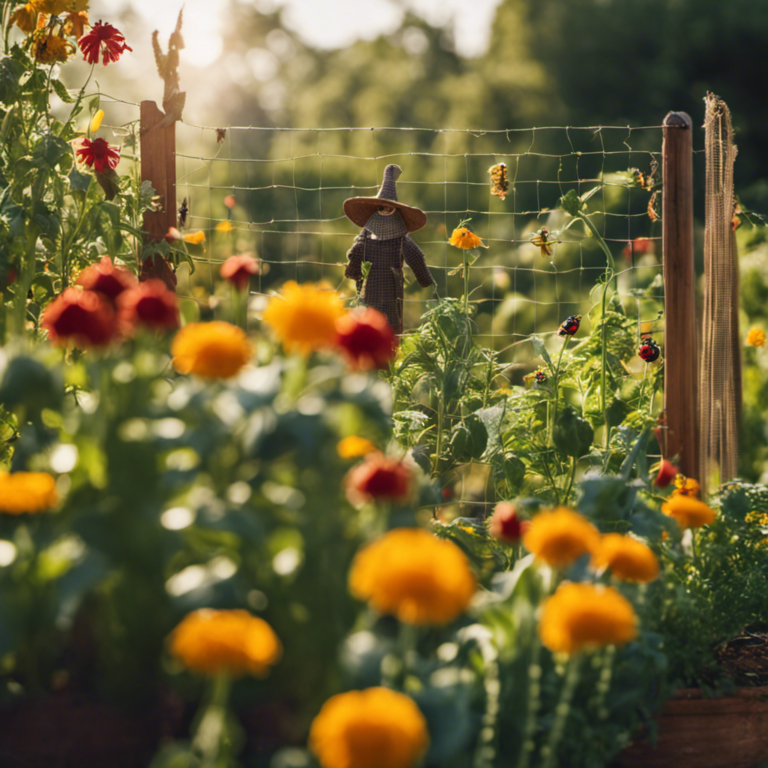Do you dream of having a vibrant garden where pests are kept at bay without the use of harmful chemicals? If so, you’re in luck! In this article, we will share the secrets to creating a pest-free paradise using natural methods.
By implementing techniques such as companion planting, attracting beneficial insects, using physical barriers, employing organic sprays, and adopting cultural practices, you can cultivate a thriving and environmentally-friendly haven for your plants.
Bid farewell to chemical solutions and welcome a garden that benefits both you and the planet.
Key Takeaways
When it comes to dealing with pests in your garden, it’s important to remember that effective, chemical-free methods exist to combat them. By practicing companion planting, attracting beneficial insects, using physical barriers, organic sprays, and implementing cultural practices, you can protect your plants in an eco-friendly and practical way.
Did you know that a study found that using companion planting techniques can reduce pest damage by up to 70%? This statistic demonstrates the power of natural pest control methods. Instead of relying on chemicals, which can have negative effects on the environment and your health, these natural methods provide a safe and sustainable solution for keeping pests at bay.
Companion planting involves strategically placing certain plants together to create a mutually beneficial relationship. For example, planting marigolds alongside tomatoes can help deter pests like aphids and nematodes. Attracting beneficial insects, such as ladybugs and lacewings, to your garden can also help control pests naturally. These insects feed on pests like aphids, mites, and caterpillars, providing a natural pest control solution.
Using physical barriers, such as row covers or netting, can help protect your plants from pests like birds, rabbits, or deer. These barriers create a physical barrier that prevents pests from accessing your plants.
Organic sprays, made from natural ingredients like neem oil or insecticidal soap, can be used to repel or kill pests. These sprays are safe for the environment and won’t harm beneficial insects. Implementing cultural practices like proper watering, mulching, and regular pruning can also help create an environment that is less attractive to pests.
By utilizing these chemical-free methods, you can effectively protect your garden from pests while minimizing harm to the environment. So next time you encounter pests in your garden, consider trying these natural pest control techniques. Your plants and the planet will thank you.
Companion Planting
Companion Planting Tips for a Thriving Garden
To successfully implement companion planting in your garden, follow these tips for maximizing plant relationships and minimizing pests.
One important aspect of companion planting is crop rotation. By rotating your crops each year, you can disrupt the life cycles of pests and prevent the buildup of diseases in the soil. This practice also helps maintain soil fertility by preventing the depletion of specific nutrients.
Another tip is to plant companion plants that have symbiotic relationships. For example, planting beans with corn helps to fix nitrogen in the soil, benefiting both plants. Similarly, planting herbs like basil or dill near tomatoes can repel pests and improve their flavor. These natural partnerships can create a harmonious and thriving garden without the need for harmful chemicals.
Beneficial Insects
Enhance the effectiveness of companion planting by attracting beneficial insects to your garden. These small but mighty allies can help you naturally control pests, avoiding the need for harmful chemicals.
Beneficial insects play a crucial role in your garden by acting as natural predators, feeding on the pests that can harm your plants. Ladybugs, lacewings, and praying mantises are just a few examples of these helpful insects.
By creating an environment that attracts them, you can establish a balanced ecosystem where these beneficial insects thrive. Planting flowers like marigolds, daisies, and cosmos will attract these helpful insects, as will providing water sources such as shallow dishes or birdbaths.
Welcome these tiny protectors into your garden and witness as they maintain the health and pest-free state of your plants.
Physical Barriers
Protecting your garden from pests doesn’t have to involve harmful chemicals. Instead, you can create physical barriers using simple materials. Here are four practical methods to implement physical barriers in your garden:
-
Vertical Gardening: Elevate your plants off the ground by using trellises, cages, or stakes. This not only saves space but also makes it more difficult for pests to reach your crops.
-
Fencing: Install a sturdy fence around your garden to keep larger pests like rabbits and deer out. Opt for eco-friendly materials such as wire mesh or chicken wire, which are effective and sustainable.
-
Row Covers: Shield your plants from insects and birds by using lightweight fabric covers. These covers allow sunlight and water to reach your plants while creating a physical barrier against pests.
-
Crop Rotation: Disrupt pest lifecycles by rotating your crops each season. This practice prevents pests from establishing themselves in your garden and reduces the need for chemical interventions.
Organic Sprays
If physical barriers alone aren’t enough to protect your garden from pests, organic sprays can provide a safe and effective alternative. These sprays are made from homemade remedies that are environmentally friendly and won’t harm your plants.
One popular option is a mixture of water and dish soap, which can be sprayed directly onto plants to deter pests like aphids and mites.
Another effective spray can be made from garlic and chili peppers, which act as natural repellents for insects. Simply blend these ingredients with water and strain before applying to your garden.
Cultural Practices
To better protect your garden from pests, incorporate cultural practices that work alongside organic sprays. These practices not only prevent pest infestations but also promote a healthy and thriving garden ecosystem. Here are four essential cultural practices to consider:
-
Crop rotation: Rotate your crops each season to disrupt pest life cycles and reduce the buildup of pests and diseases in the soil. This practice also improves soil fertility by balancing nutrient requirements.
-
Companion planting: Planting certain crops together can repel pests or attract beneficial insects that act as natural predators. For example, marigolds can deter nematodes, while planting basil near tomatoes can repel aphids.
-
Proper sanitation: Regularly remove any plant debris, weeds, or fallen fruits from your garden. These can harbor pests and diseases, leading to future infestations.
-
Mulching: Apply organic mulch around your plants to suppress weeds, retain moisture, and improve soil fertility. This creates a healthy growing environment that’s less attractive to pests.
Conclusion
Next time you’re dealing with pests in your garden, remember that there are effective, chemical-free methods to combat them.
By practicing companion planting, attracting beneficial insects, using physical barriers, organic sprays, and implementing cultural practices, you can protect your plants in an eco-friendly and practical way.
Did you know that a study found that using companion planting techniques can reduce pest damage by up to 70%? This statistic demonstrates the power of natural pest control methods.
